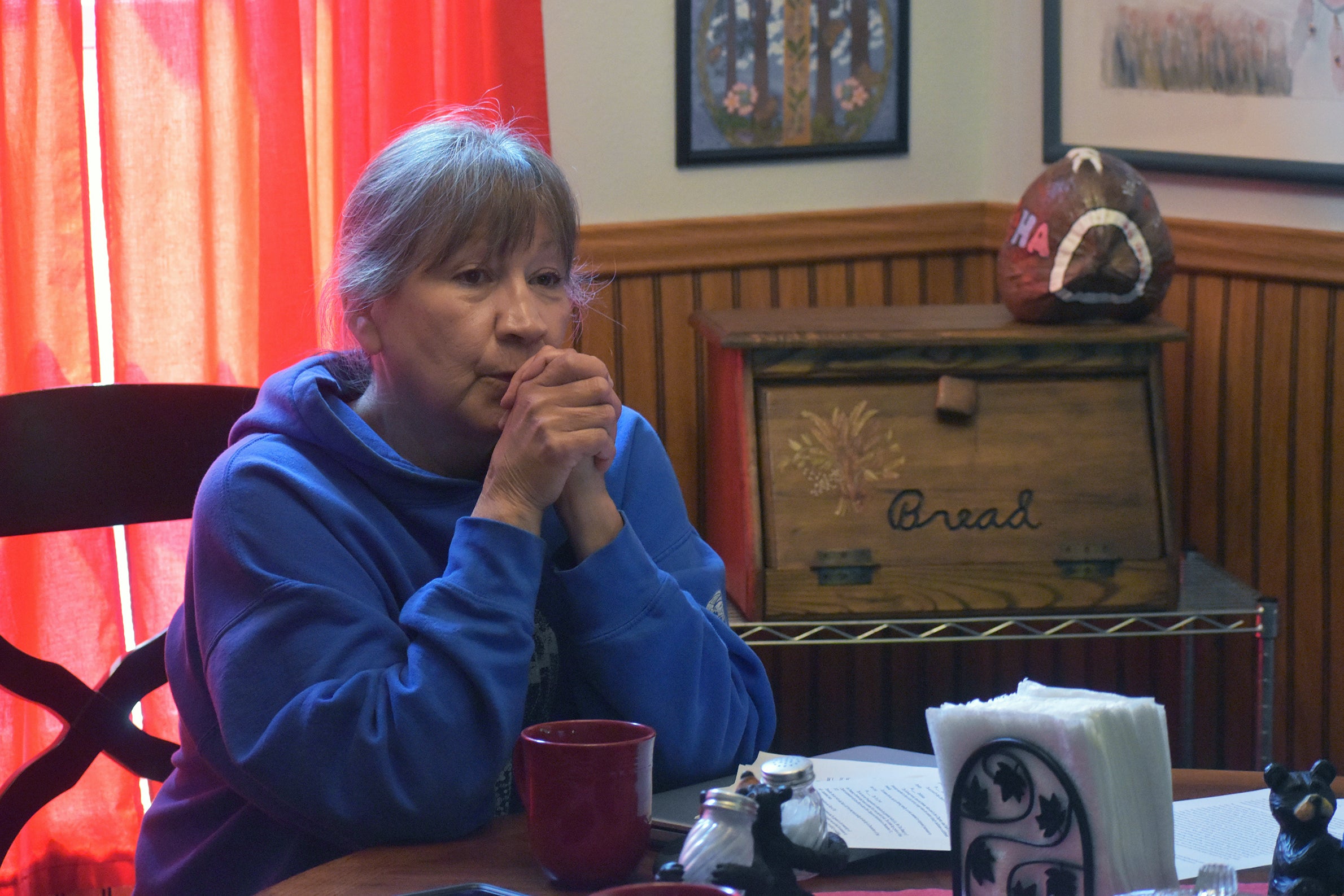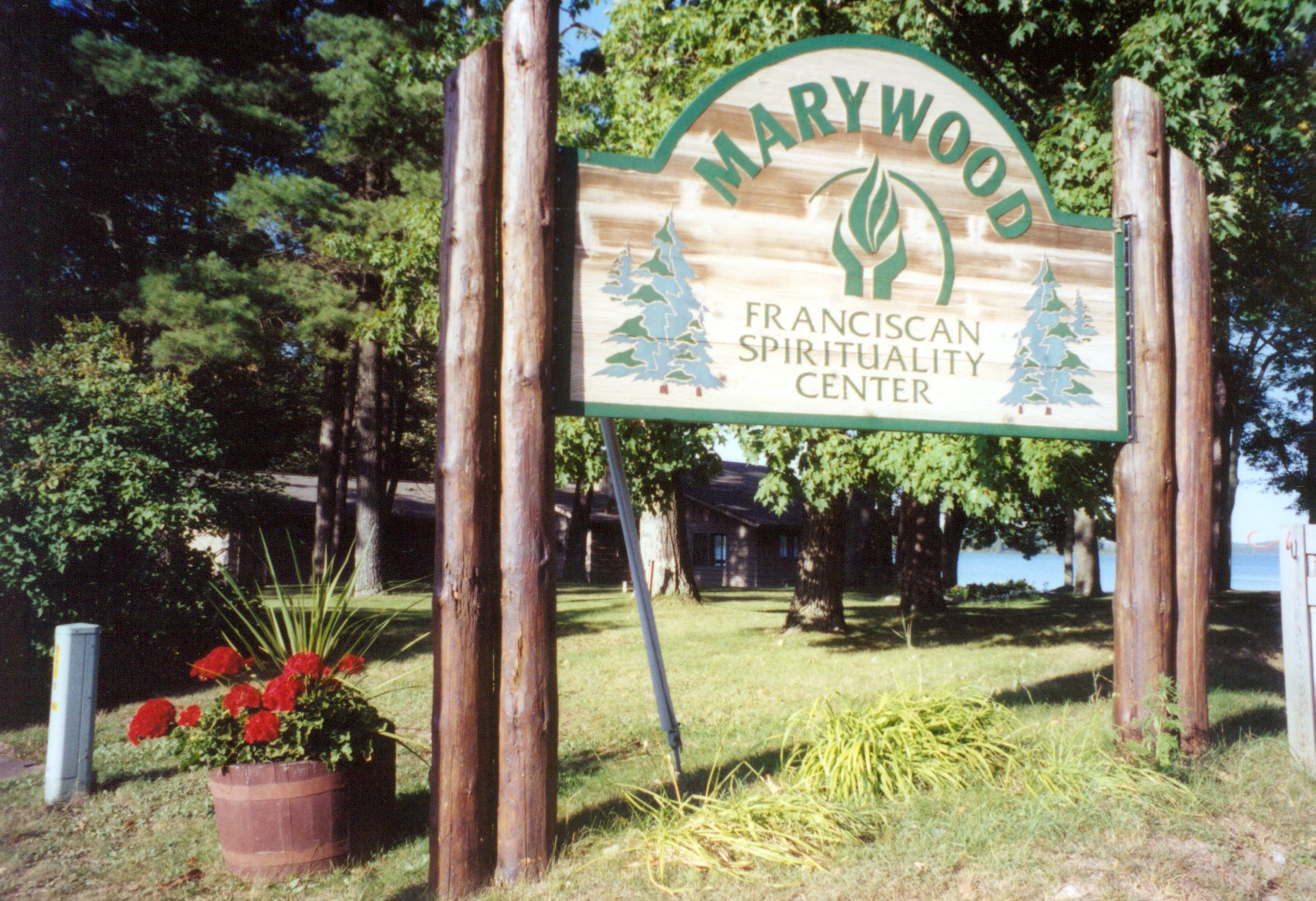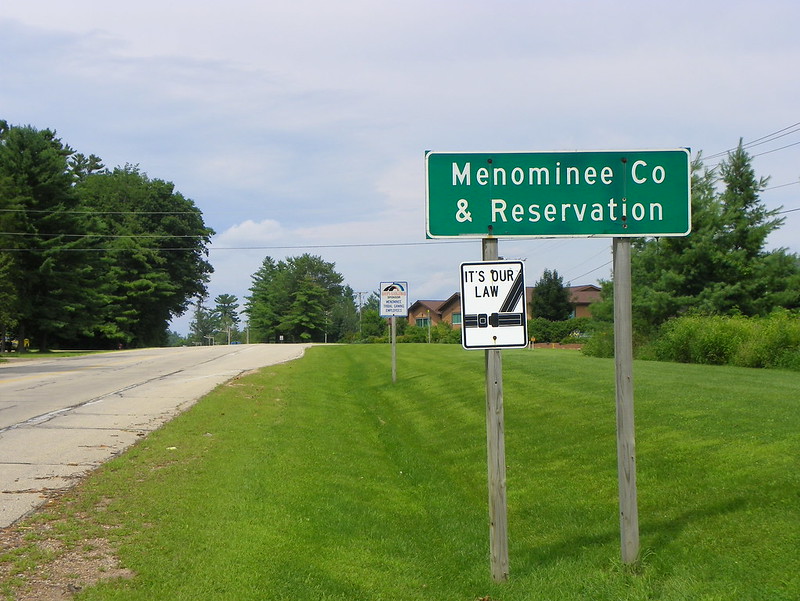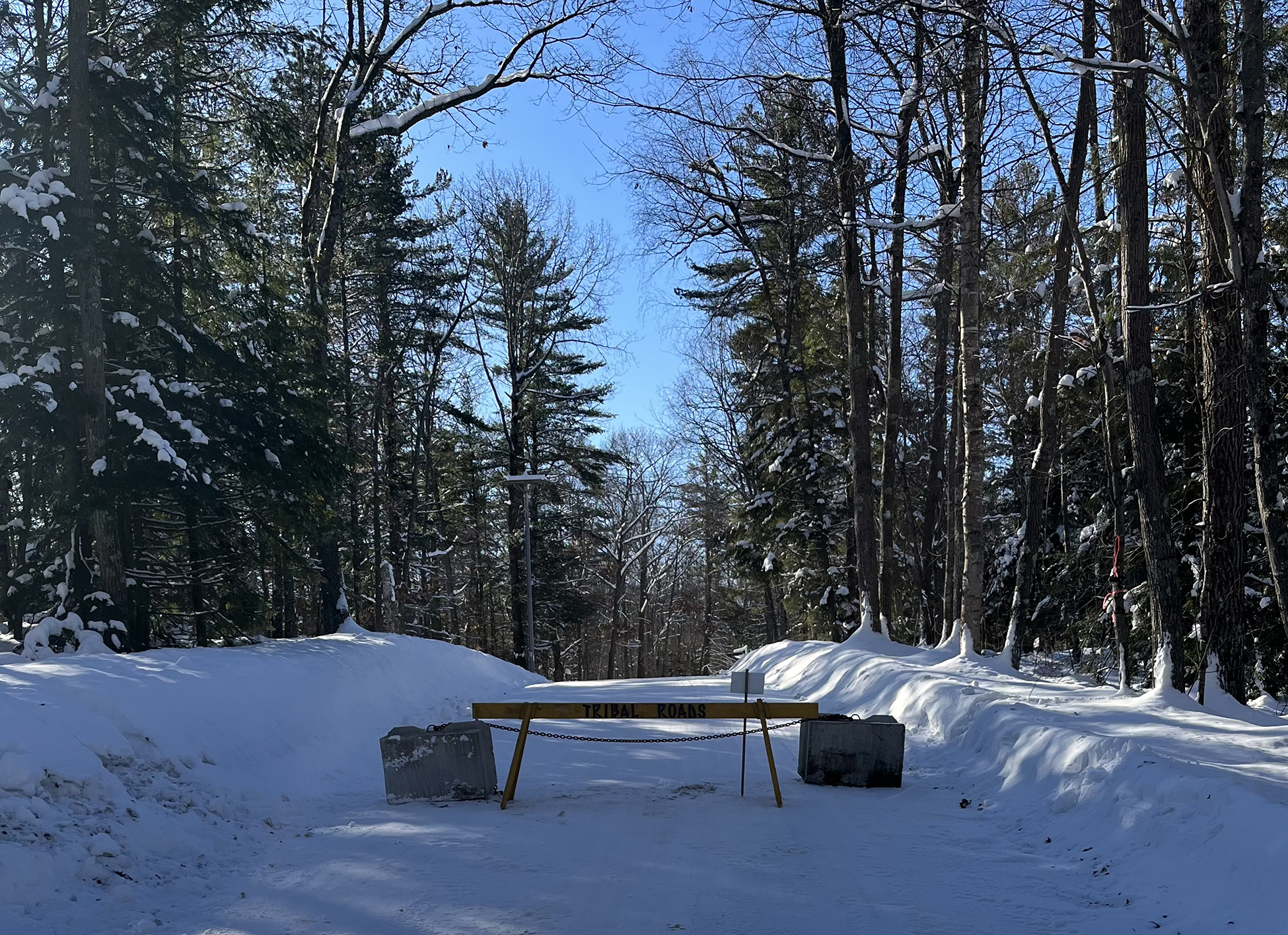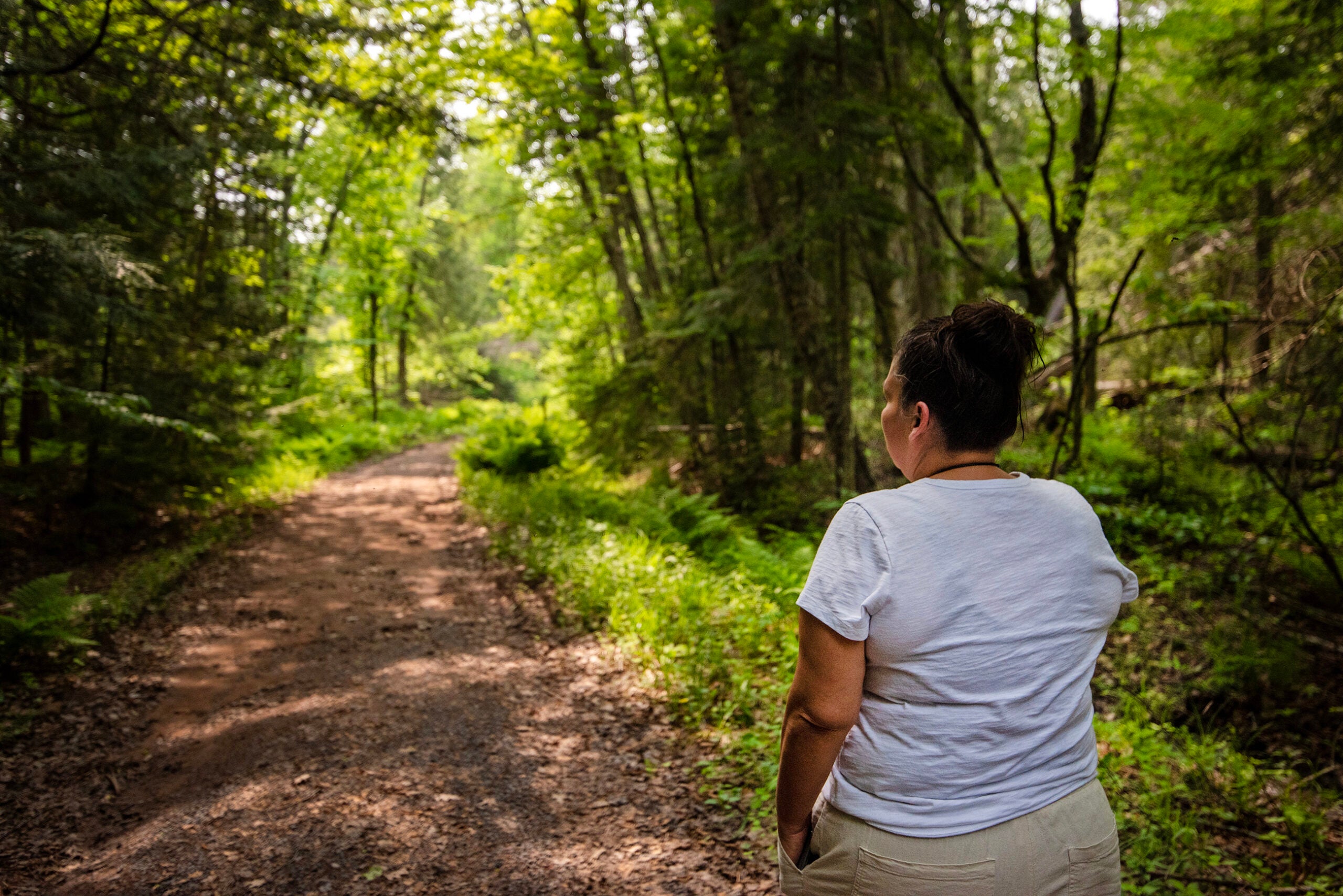For most of her life, Sandy Deragon paid taxes on land that she and her late husband owned on the Bad River reservation in northern Wisconsin.
But it turns out they never owed a dime.
“I want to see my money back,” Deragon said.
News with a little more humanity
WPR’s “Wisconsin Today” newsletter keeps you connected to the state you love without feeling overwhelmed. No paywall. No agenda. No corporate filter.
Deragon, 66, is a member of the Bad River Band of Lake Superior Chippewa. Her house rests on a lot less than an acre about a mile from Chequamegon Bay on Lake Superior. A federal appeals court ruled last summer that Wisconsin can’t force tribal landowners to pay property taxes on reservation lands. That’s what Deragon and many other tribal members have been doing for years.
The ruling changed that.
Now, tribal members with property on reservation lands in close to a dozen northern Wisconsin towns are being taken off the tax rolls. The decision is a victory for tribal sovereignty, but it also means fewer residents are paying property taxes in those communities. In one community, taxes have skyrocketed for nontribal residents. And local governments are seeking state aid in hopes of making up the lost revenue.
The decision from a three-judge panel on the 7th Circuit Court of Appeals stems from a 2018 lawsuit brought by four northern Wisconsin tribes. The Lac Courte Oreilles, Lac du Flambeau, Red Cliff and Bad River Bands of Lake Superior Chippewa sued the state and towns over taxation of their lands.
The tribes argued lands owned by their members can’t be taxed because the 1854 treaty that established their reservations gave them immunity from state taxation for all time. The state’s position was that land owned by the tribes since 1854 couldn’t be taxed – but any land that had ever been sold to someone outside the tribes could be, even if the land was later sold back to tribal members like Deragon.
The court ruled in favor of the tribes in August, and in November the state declined to appeal the decision.
To Deragon, the ruling upheld the treaty that established their reservations. When the tribes signed the treaty with the federal government, they wanted to ensure permanent homes for their members as federal policy had sought to force tribes westward.
“This is our forever homeland,” Deragon said. “When that was reaffirmed (by the appeals court) it was like, oh my god, a dream come true.”
Tax bills doubled for one town’s taxpayers
The Bad River tribe in recent years has made a concerted effort to buy back property on the reservation that had been lost to the tribe. Tribal chairman Mike Wiggins Jr. said the tribe has spent about $10 million on the work.
“Our goal is always a long term vision (of) repatriating or bringing back into our ownership as a tribe 100 percent of our reservation lands within our boundaries, either through ownership as a tribal nation, or ownership as tribal members,” Wiggins said.
Wiggins said the ruling means that his tribal members are no longer at risk of losing their homes to foreclosure because of an inability to pay taxes.
The legal issue is really about the boundary between state and tribal sovereignty rather than taxation, according to Richard Monette. He’s a professor of law and director of the Great Lakes Indigenous Law Center at UW-Madison.
Monette said the treaty of 1854 established the tribes’ territories, but their sovereignty and domain over their lands was undermined by the Dawes Act or General Allotment Act of 1887.
Northern Wisconsin tribes had every right to assume that if a tribal member sold property that the land would remain within their reservations, Monette said. In one analogy, he noted the purchase of land in Wisconsin by somebody from Minnesota doesn’t make that property a part of Minnesota.
“Minnesota says we’re not going to try to tax your property interest if the property’s in the territory of another sovereign: the state of Wisconsin,” Monette said. “But we don’t extend that same sort of courtesy and recognition to an Indian tribe.”
After the court ruling, towns that include reservation lands were required to remove tribal properties that were once owned by nontribal members from their tax rolls. For the town of Sanborn that lies entirely within the Bad River reservation, that meant losing around 85 percent of the taxable property in the community of nearly 1,400 residents. Ashland County Administrator Dan Grady said that was a significant blow to remaining taxpayers.
“That meant that the remaining 15 percent of properties had to pay for the entire levy apportioned to Sanborn,” Grady said.
With fewer properties and less value to tax, remaining residents paid a higher tax rate to provide taxes due to the state, county, town and schools.
Sanborn’s tax rate doubled. A $100,000 home saw taxes increase from $2,168 in 2021 to around $4,438 last year.
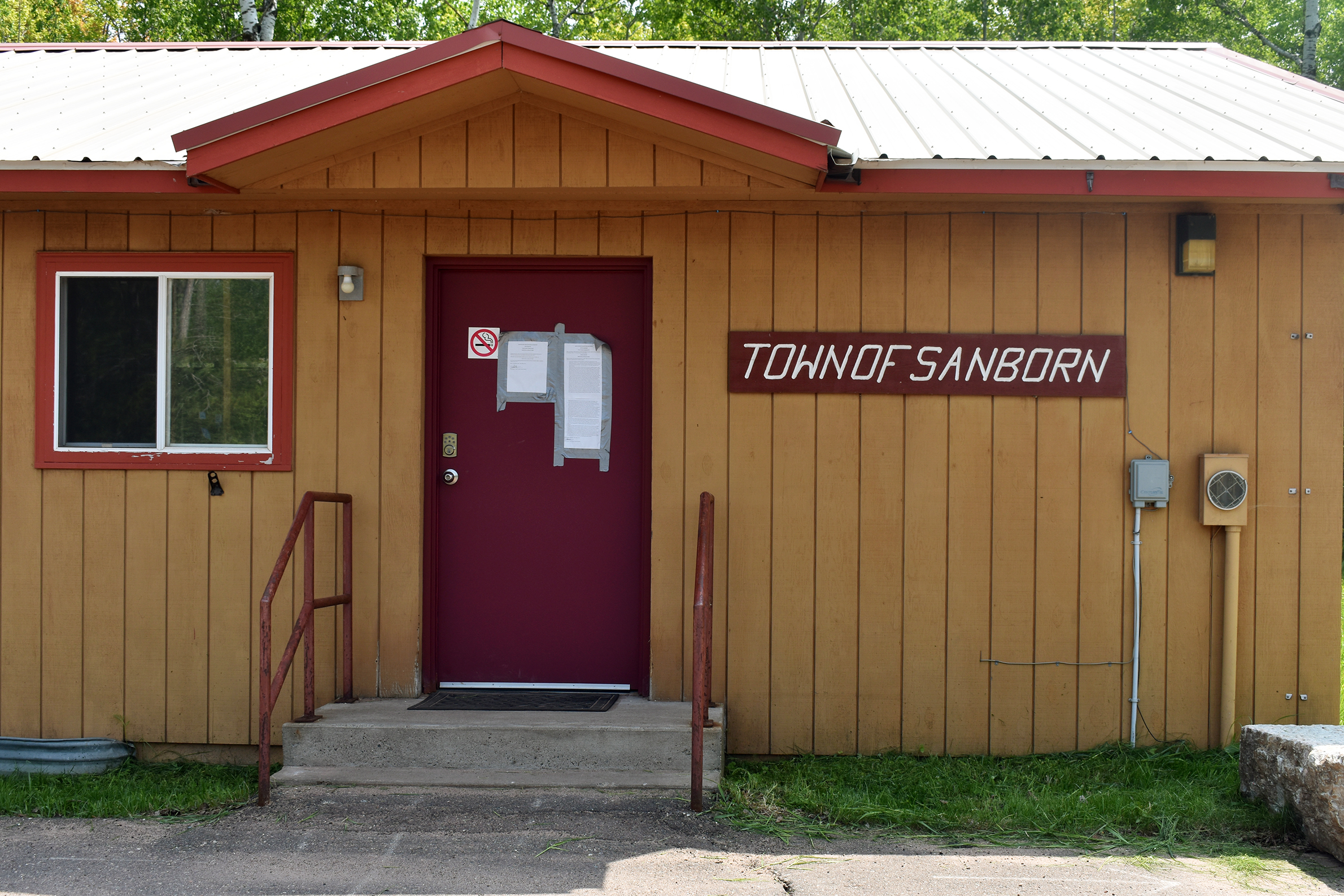
At a meeting of the Ashland County Board this month, Sanborn resident Scott Bretting said his property tax bill more than doubled from 2021 to roughly $22,000 last year. He painted the different expectations for tribal and nontribal property owners as unfair.
“If we didn’t pay it, they would have foreclosed on our houses,” Bretting said.
Now nontribal residents say they fear they’ll be driven from their homes. Sanborn residents interviewed by WPR declined to give their names, but said they worry they’ll be taxed to the point where they can’t afford to pay.
Luis Salas, the town’s chair, is not a tribal member. He said fallout from the court decision has stressed relations between tribal members and their nontribal neighbors.
“We need the (state’s) assistance so that we can resolve the situation,” Salas said. “This angst and this anger and this hurt that our community, our members, our citizens are going through are no fault of theirs.”
Counties seek state aid to fill the gap
Ashland County and four other counties are asking the state to make up the difference to avoid substantial tax hikes for residents. Leaders in Ashland, Bayfield, Iron, Sawyer and Vilas counties estimate they’ll collect around $1.8 million less over the next two years. And they anticipate that number will grow as more tribal members are removed from the tax rolls.
On top of that, county officials estimate they’re facing about $3.6 million in losses after some tribal members withheld tax payments while the tribes’ lawsuit was pending. Counties can no longer recoup those funds since the court found the state couldn’t tax those properties.
Bayfield County Administrator Mark Abeles-Allison said the five counties are seeking $5.4 million aid so that they can maintain services while local governments sort through changes.
Democratic Gov. Tony Evers proposed roughly $1.1 million in state funding under the next two-year state budget to provide aid to towns and counties affected by the ruling. If approved, they would receive $578,000 in the first year, and that money would be gradually phased out over 10 years.
Sen. Romaine Quinn, R-Cameron, and Rep. Chanz Green, R-Grand View, have been working with other lawmakers on a potential solution under the state budget.
In a statement, Quinn said the state should work to “ensure taxpayers are not driven out of their homes – nor should they subsidize residents who aren’t paying for services they receive.” He said viable solutions “will require the state working together with local communities and tribes.”
Green said negotiations are ongoing among lawmakers, and they’re seeking more than just a one-time fix.
“I would like to see this problem resolved permanently, but…it’s been a grueling process,” Green said. “We’re just trying to make sure that we cover all our bases and that everybody’s treated fairly.”
Deragon and Salas both note that the Bad River tribe has provided millions of dollars in funding over the years to help the town pay for emergency medical services and road repairs. More recently, Salas said the tribe has agreed to provide money to help pay for ambulance service.
Tribal members like Deragon say circumstances up until now have been anything but fair for those paying state taxes on reservation lands.
“They will be having to bear that tax burden, because we’ve been picking it up for them,” Deragon said. “They have not been paying their fair share.”
Tribal members seek refund of unlawful taxes paid
This is not the first time tribal members have been removed from the tax rolls in the town of Sanborn.
In 2007, the town exempted tribal members from taxation after a federal appeals court ruled in a Michigan case that the state can’t tax reservation lands set aside under the 1854 treaty. Nontribal residents sued the town in 2016, challenging the decision. The following year, a Sawyer County judge found tribal lands were not exempt from taxation and ordered them to be placed back on the rolls.
After the ruling, Deragon said she and other tribal members had to pay several years of back taxes at once.
“I had to cash in one of my retirement funds to pay,” Deragon said. “I think I was charged close to $9,000 all at once I had to come up with or risk losing my home – the land here anyway.”
In 2018, Deragon and roughly 40 other tribal members sued the town for a refund of taxes they paid. Now, Salas said the community is expecting another financial hit as the town must refund tribal members who filed claims for unlawful taxes paid.
“None of our tribal members (or), nontribal members are at fault,” Salas said. “This is because of decisions that were made way beyond our hands, by the state, by opinions that were incorrect.”
Despite the state’s decision not to challenge the ruling, it’s not assured that it will stand. Monette said he believes the appeals court decision could eventually be reversed by the U.S. Supreme Court, noting prior rulings have deemed the state can tax lands reacquired by tribes in New York and Minnesota. Despite that, he said no reservation lands should be taxable by states because that’s tribes’ unceded territory.
He said northern Wisconsin tribes should establish a private property system.
“Fighting the state is not the only reason to govern your property,” Monette said. “Protecting your own people’s interest in private property, their own civil liberties and civil rights is also at stake.”
Some residents seek to avoid taxes as Bad River proposes tax
Both Salas and Deragon say some nontribal residents had granted tribal members a portion of their properties to avoid taxation.
The Department of Revenue states any amount of ownership by one of the four tribes or one of its members exempts the land from Wisconsin’s property tax. In theory, that could mean that a nontribal member who transfers a 1 percent portion of their property to a member of a tribe could avoid paying taxes on the whole property.
County records show some landowners in the town of Sanborn transferred a portion of their property to another individual in December.
“Somebody’s trying to get away with a fast one,” Deragon said.
WPR was unable to independently verify that individuals who became owners of nontribal parcels were enrolled members of the Bad River tribe. In cases reviewed by WPR, nontribal landowners paid half the taxes owed despite transferring a small share of their property to another owner. State law allows property owners to pay half the taxes due in January and the remaining half by July.
At the same time, the Bad River tribe is proposing to impose its own tax on properties within its reservation. Under the proposal, the Bad River Tribal Council would have power to assess and collect taxes, as well as seize lands for any unpaid bills.
“The plan is to exempt all tribal members,” said Grady, Ashland’s County administrator. “If you had a house on the lake, you’d pay a 5 percent tax on the assessed value.”
Wiggins said exemption of tribal members considers the historical trauma they’ve faced as they’ve been deprived of their homes. He added that the tribe is not unlike any other state or local government that needs to generate revenue to fund services.
“At the end of the day, the property tax that we’re looking at as a tribe isn’t meant to be warlike or adversarial, in any kind of particular appointed direction,” Wiggins said. “It’s really a response as a responsible government looking at how we’re going to survive moving into the future.”
The tribe would also assess penalties for any “willful misrepresentation or act of fraud” that results in underpayment of taxes. Wiggins said he considers it fraudulent for nontribal members to transfer a piece of their property with the intent to avoid paying taxes.
The tribe issued the proposal at the end of February. Just a week later, land that had been allegedly transferred to a tribal member was granted back to its original owner.
If approved, the proposal states the tax would be imposed on January 1 of each taxable year.
Deragon sympathizes with nontribal residents because she thinks everyone works hard to pass something on to future generations. But she said the tribe and its members have lost lands because they couldn’t afford to pay taxes.
“And truly, if you’re not a member, they shouldn’t have been here to begin with,” Deragon said. “This was our land set aside.”
Wisconsin Public Radio, © Copyright 2025, Board of Regents of the University of Wisconsin System and Wisconsin Educational Communications Board.

